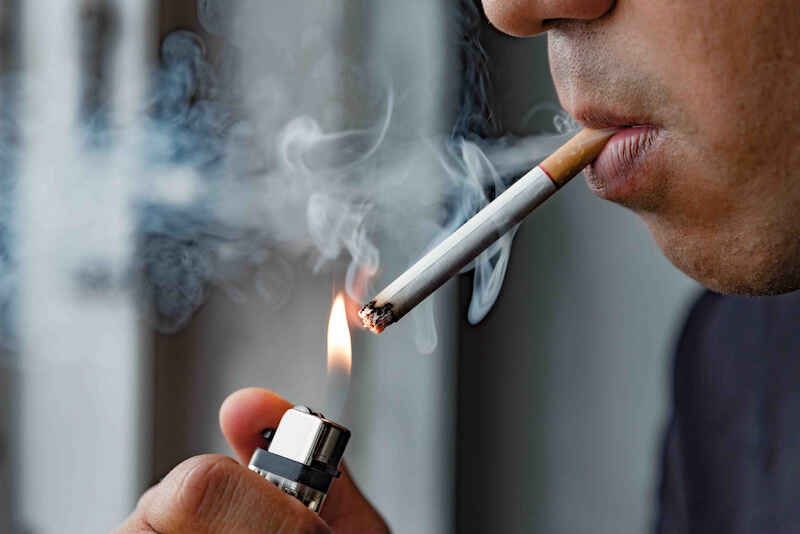14
April 2022
Pandemic Sparked Increase in Smoking
Although media coverage of the UK’s lockdowns focused on the healthy habits some people took up while stuck at home and worried about their resilience against the virus, from exercise to better diets, there was another, quieter trend: more people turning to nicotine.
To mark National No Smoking Day in March, insurance comparison site Quotezone examined a sample of 5,000 life insurance policies to gauge the prevalence of smoking. Smokers must disclose the habit when applying for life insurance cover.
Quotezone found that the number of non-smokers fell by nearly 10% between the first and second half of 2021. But the increase in smoking between the beginning and end of 2021 isn’t simply because people who gave up smoking for a New Year’s resolution fell back into the habit. The number of non-smokers previously increased across both 2019 (by 20%) and 2020 (by 8%).
Quotezone founder Greg Wilson said: “When we analysed our life insurance data, we were expecting to see a continued fall in the number of smokers and so it came as a worrying surprise that more people were smoking than before the pandemic.”
The comparison site suggested that people, including many former smokers, took up smoking to deal with stress and boredom during the pandemic and then couldn’t kick the habit. Quotezone’s research echoed a recent study that found nearly half of smokers have increased their consumption since the beginning of the pandemic.
A fifth of smokers say they are still smoking 20% more cigarettes since the start of the pandemic two years ago, while one in six are smoking 50% more. One in 10 smokers say they’re smoking over 50% more.
The increase in cigarettes smoked translates to additional spending of £9 per day for the cheapest brands, or £63 a week, and £3,276 a year. Smokers’ insurance costs will also rise, even if they’re using smoking alternatives like vapes and e-cigarettes.
“Aside from health issues, even just one cigarette a day has the potential to affect your life insurance policy and drive-up premiums,” said Quotezone’s Wilson. “Most insurance providers don’t differentiate between the various types of cigarettes, vapes and e-cigarettes—so you must make sure to answer all questions accurately and honestly. If you ever need to make a claim, the insurance provider will investigate and if you’re found to have misled them, you may not be covered.”
Research from insurer Royal London recently revealed that smokers pay up to £16,000 more for their life insurance over their lives.
There are also the costs shouldered by the NHS and the taxpayer. Annually, more than half a million hospital admissions are attributable to smoking. If lockdown smokers keep up the habit, these admissions are forecast to rise.
With six million people continuing to smoke in the UK, tobacco remains the country’s largest cause of preventable death. 64,000 smokers died as a result of smoking in 2019.
In response to this, the NHS has launched a new scheme where every pharmacy in England will offer stop smoking support to patients when they are discharged from hospital. Pilots of the scheme run in Oldham, Greater Manchester were very successful: three in five participants successfully quit with the help.
The government is mulling even more drastic measures, including banning under-25s from buying cigarettes, a change that could make the UK smoke-free in less than a decade. Former Barnardo’s chief executive Javed Khan has been tasked by Health Secretary Sajid Javid to head up an independent review of smoking policy and is reportedly considering legislation introduced by New Zealand as a model. From next year, New Zealand will ban the sale of tobacco to anyone born after 2008, ensuring that younger generations can never legally buy cigarettes in their lifetimes.





